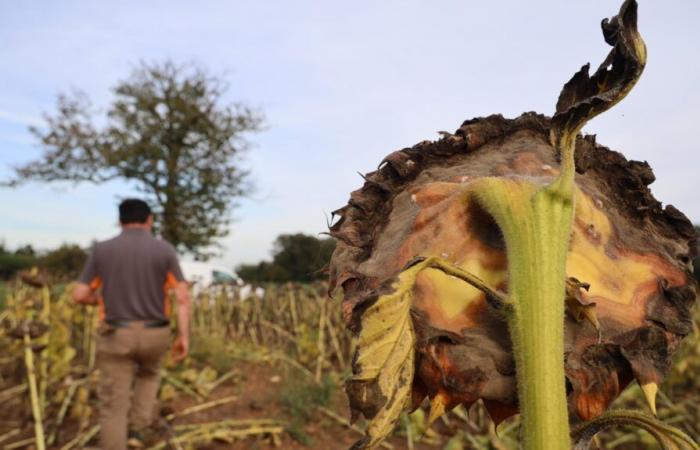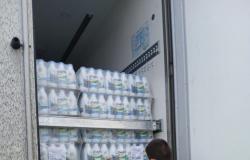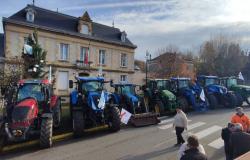During its September session, the Chamber of Agriculture had already drawn up an alarming assessment of the growing year. Three months later, the final general assembly of the mandate, which was held on Tuesday November 26, revealed a slightly more degraded situation. Rainfall “which has reached levels not seen in a long time” has compromised the autumn harvests and is now jeopardizing the future of certain farms.
In certain plots, the sunflower has not yet been picked: this is the case for 50% of the plots in Boischaut Nord and 70% in Brenne, for example. “Yields per hectare are decreasing between September and October. The quality is degraded. And for part of the harvest, we have to add drying costs,” summarized Bruno Tardieu, first deputy secretary of the Chamber of Agriculture. The results are the same for other cultures. The millet and corn harvests are also suffering from the effects of the weather and “very real climate change in our prairies”, underlined Jean-Baptiste Quillet, breeding advisor.
“5 to 10% of farms in great difficulty in Indre”
“Such a level of climatic conditions, poor harvests and poor sowing conditions on degraded soils is exceptional,” breathes Nicolas Pailloux, president of the Chamber of Agriculture, who has another worrying figure in mind: “5% to 10% of farms are in serious difficulty in Indre. We support them but there is a risk that they will not survive the next two years. » During his mandate, he saw the impact of climate change increase. “What is new is the frequency and intensity of episodes of drought and rainfall. Operators no longer have time to absorb the jolts. »
The farmers invited themselves to the chamber of agriculture. They displayed their banners outside the building where the final session of the mandate was held.
© (Photo NR)
In this “context of instability”, the Chamber of Agriculture tries to provide its solutions. “This is the meaning of the support measures of our Terr'Active project but also of the My 2024 campaign report system, specially deployed to support farmers whose cash flow will be strongly impacted following this year's bad weather. » During the session, fertilization advice and forage analysis assistance (via the Agrinir tool) were also detailed.
While the angry farmers symbolically converged on the chamber of agriculture, the prefect concluded the assembly by detailing the support measures already put in place in the department of Indre in recent months, “since the previous mobilization” of the profession. Not without reminding “the importance of taking out insurance”, Thibault Lanxade assured state support in the face of situations aggravated by climatic conditions.
In ongoing discussions with the ministry, he confirmed the request for an envelope of €200,000 to cover the economic and technical diagnosis of around a hundred farms in Indre, in great difficulty. Regarding Mercosur, which crystallizes the discontent of the profession and which was the subject of a motion voted by the Chamber of Agriculture of Indre, this Tuesday, the prefect did not elaborate. “The State has clearly shown its disagreement” in the discussions with Brussels, he simply recalled.






